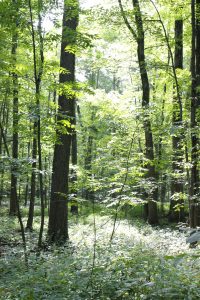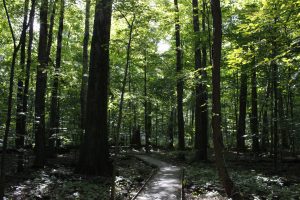Visiting David Kline’s farm reminded me strongly of visiting my cousin’s house in Gallipolis, Ohio as a kid. As a kid I adored the hour and a half long drive to South East Ohio, up and down steep, hilly roads and through eternities of corn fields and forests. Eventually, the car would come to the gravel driveway leading up a final hill to the old dark-wood house. Far out of the reach from cell towers and highway noise, the house was a reminder of a hard labor and natural joy, with forests and yards meant for both playing and working outdoors.
Visiting Kline’s farm, It felt like returning to a family home; I was used to cows and horses, free-range chickens running through the yard and friendly faces walking up to your car to welcome you. I was happy to see Kline humble about his hard labor that showed all around him, labor that let him and his family live upon the work of their hands. The generator kicking on didn’t startle me; I was already used to the loud rumble of pickup trucks that shook my heart in my chest as a kid.
This place felt like a second home, but with more emphasis on the farming lifestyle and community. Although it reminded me of my innocent days of childhood, I couldn’t help but to compare to my present self, with an iPhone in pocket, severely under-dressed for the cold and following behind a trail of classmates, instead of leading or running freely. In my present state of mind, I found it hard to imagine myself living this lifestyle, I felt too burdened by the call of technology and “the Grid” pulling me back to the college. I greatly enjoyed being on Kline’s farm, but I was saddened I couldn’t return to the days where hard work overshadowed the alienation of society at large.




